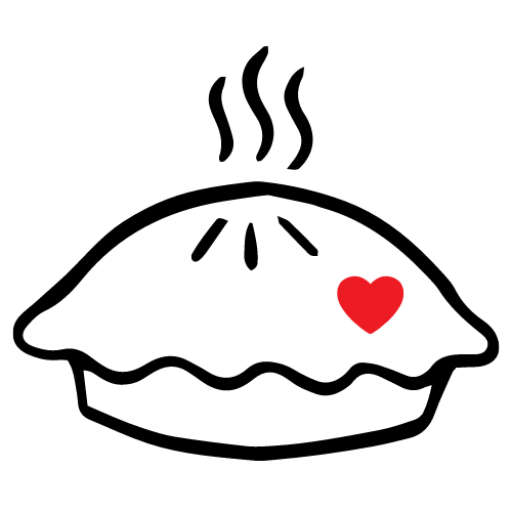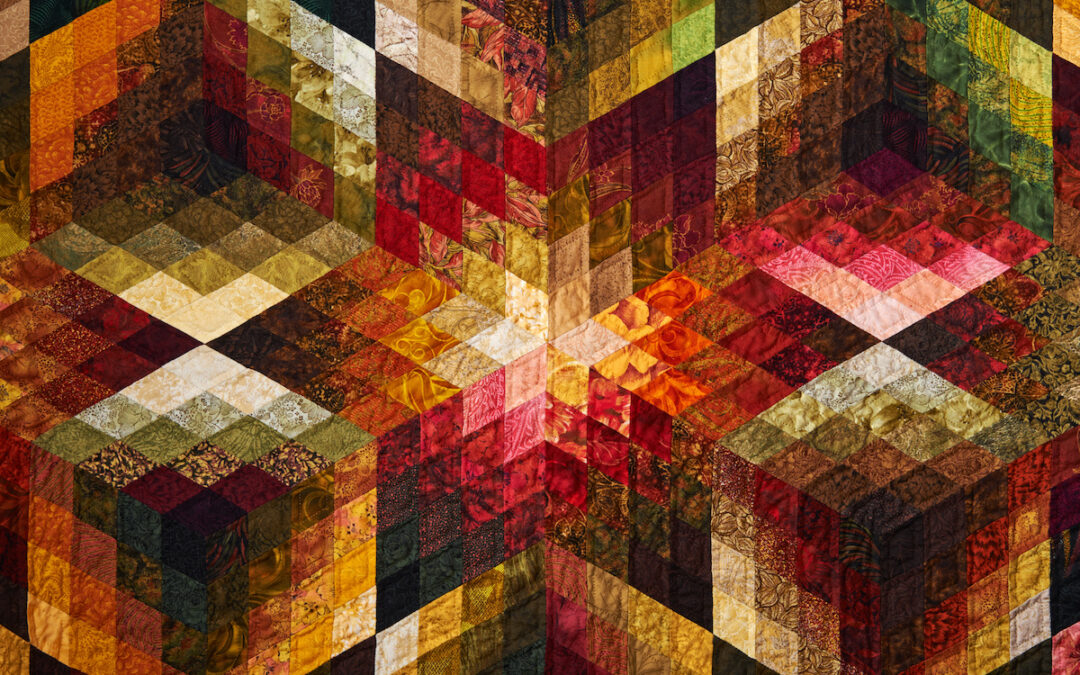As I mixed ingredients for meatloaf, then mashed the potatoes last Sunday afternoon, I listened to a poet explain over the kitchen speaker how we are all stitched together as one in Indra’s Net — a spiritual concept I find comforting.
For a long time, I’ve thought we are all connected as threads in a giant, gorgeous quilt. This image of a jeweled net, with each of us on a knot or node, anchored by a jewel reflecting all the other jewels in the net also resonates with me.
So it was a hallelujah moment, right there in the kitchen, during the cooking. I may have gasped, confusing my husband who wandered in to check on me, and dinner.
Let me back up a bit.
Soulful Sundays
Sundays can be tricky. There is all this stuff I want to get done to be ready for Monday, on a day for rest and spiritual reflection.
We often attend the church service next door, take a long walk in the woods — or sometimes both. (I write about my faith with no intention to judge or pressure anyone. Read some thoughts on faith.)
Often, on Sunday afternoons, I soulfully multi-task by cooking something big that gives us leftovers, and listening to music or podcasts so my mind can reflect and my spirit can recharge while my hands are busy chopping.
Last Sunday, I mixed and shaped four pounds of ground venison into meatloaves and a batch of meatballs, then boiled and mashed potatoes and made a pot of potato-leek soup. We are a hunting family with the good fortune to have plenty of venison in the freezer. I like to share it.
I cooked and listened to an unedited interview with Anita Barrows, a poet, psychologist and translator, about “The Soul in Depression,” an episode of a podcast I love. It was so full of rich insight about depression.
Krista Tippett interviewed Barrows for the “On Being” podcast.
About “On Being”
This winter, I re-discovered the work of Krista Tippett, a writer and host of On Being which examines the “animating questions at the center of human life: What does it mean to be human, and how do we want to live?
Tippett’s work won me over long ago. The website describes On Being’s approach as: “Opening the moral questions of humanity hospitably to the seeker, the atheist, and the devoutly religious.”
Nearly 20 years ago, I would listen to Tippett’s conversations on a radio show called Speaking of Faith while cooking in my Maine kitchen on Sundays or driving home in the dark from a weekend visit somewhere.
I needed those conversations then — and appreciate them now, to cope and make sense of our times in which multiple crises unfold. I love listening to Tippett explore these questions across disciplines and religious traditions.
I believe God talks to us in many different ways. And I see the sacred and divine in many places, ways and traditions.
Connected through Stitching
Like quilts. God speaks to us in quilts.
My grandmother sewed clothes, and I loved to watch her hands work the cloth through her machine. When she died in 1995, I inherited her sewing machine and supplies, and soon fell in love with quilts and quilt-making. (Read a Calm Center in the Storm.)
Just about every quilt I have seen is so exquisitely beautiful it speaks to my soul. Often, I’m crying as I walk through a display at a community hall, school gymnasium or fine arts museum, viewing the incredible, hand-crafted quilts — even though they are all so different from each other.
The singer Sammy Hagar explained his experience of viewing a painting in a museum, that struck him as so beautiful it just reached right into him and touched him. He wove that moment into his lyrics of the Van Halen song “Best of Both Worlds.”
When he described the backstory of those lyrics in an interview, I recognized that breathtaking, awe-inspiring moment of connection.
That’s what I feel like when I see a quilt.
A Stitch — not the Quiltmaker
Quilts and quilting brought me comfort after the September 11 terrorist attacks shook us to the core. That day led to heartbreak upon heartbreak, new wars, a surge of hate crimes against Muslims — and people perceived to be Muslim.
The world felt to me as if it would spin right off its axis.
In my business magazine work, I was already writing about climate change, because my job was to cover trends in global seafood supply and I studied marine science, oceanography and ecology.
I was afraid and overwhelmed, working to understand what was going on, what it meant and my place within it.
I’m not sure how or where this idea came from, but I began to think of life and the universe as a really big quilt. I am not the quiltmaker. I am a stitch. A thread.
On my best days, a colorful patch of fabric, and in my worst times a piece of thread working to stay strong and not unravel.
When I would get overwhelmed with the weight of the world, I thought about that big, glorious quilt of the universe and all the cosmos, all the traditions and discipline and music, art and poetry, all the ancestors and all the mysticism and legends.
When I, as a terribly flawed human being, start worrying or trying to fix all the problems of the world, my most important job is to remember that’s not my job.
My job is to keep my stitch as strong and beautiful as possible, to support the strength of all the stitches around me and ultimately the strength and beauty of whole, glorious multi-colored quilt.
Practicing Connection
In the pandemic, when connection has become especially important, quilts and quilting have again brought me comfort and peace and connection. The bluebirds. Making Pie. Baking Bread. Hugging the trees. Music and song lyrics. Church services and rituals. Nature and gardens. Breath. Water. Stories. These are all my paths and practices of connection. Yours are different and that’s OK — this quilt is huge!
In the interview I listened to last Sunday, Anita Barrows spoke of growing up in a Jewish family with a mother who suffered from depression. She described observing a “permeable darkness” and how she could feel a change in the atmosphere as a child when she stepped into her mother’s bedroom, where she was often sleeping or crying.
Barrows talked about suffering her own depression after the birth of her eldest daughter. It’s impossible to make sense of those awful days as they are happening, she said. Looking back, Barrows said what has worked for her more than anything is the experience of being interconnected and held by the web of life.
She quoted her friend and colleague Joanna Macy, speaking about the net of Indra, a goddess.
“Indra’s net spans the entire universe and it holds each sentient being, and every one of us is on a node in that net. You know how if you move one node or knot in a net the whole rest of it is affected,” said Barrows.
– unedited interview with Anita Barrows by krista tippetts, 2002, audio published feb. 4, 2021, on being podcast, apple
The net is our true home and out of it we cannot fall, continued Barrows. It represents our oneness — the ways in which we are all part of God.
“Every tradition that I have worked my way into has really spoken to me of that,” she said, “that sense in which all things are one, all things are held, all things are the same, and therefore that horrible experience of exile which I think is the essence of depression, exile and that dreadful self-consciousness and self-enclosure has been solaced by that practice of oneness, that practice of really trying to know the oneness.”
Whether a jeweled net or a stitched quilt, this idea brings me tremendous comfort and makes so much sense to me.
This reminds me of the advice of a spiritual teacher in those post-Sept 11 years: “What are you afraid of? You are a child of God and you can’t fall off the earth.”
It’s empowering to me, too. Because if we can lean into that strength, can’t we also work to mend the places where the quilt is torn? We are not the quilt- net-makers, but we can hopefully be menders and helpers in our own ways.
No single one of us can fix the pandemic or the injustices of racism or climate change. But we can each be strong, and loving and giving and hold together our piece of the quilt, as we celebrate how beautifully woven we are with each other — and all of nature.
Sunday has come around again, and I’m off to cook — and tune into the sacred and divine all around us.


Your blog is so rich with beautiful imagery and powerful words for reflection. There is so much that I can relate to. Faith, music ministry and expression and purpose through creative projects have sustained me through turbulent times. Although we may not be able to change the world, we can make a difference, one relationship at a time.
Thank you so much, Diane for your kind words. Exactly – We’re not “the quilt maker” but can still radiate a positive, peaceful influence.
A lovely meditation. Love how everyone’s paths to connection are different and that’s ok.